Men, Alone
In which Norm spins up Canadian International Pictures' restoration of the landmark queer drama WINTER KEPT US WARM, and Imprint's Blu-ray of Martin Ritt's HUD.
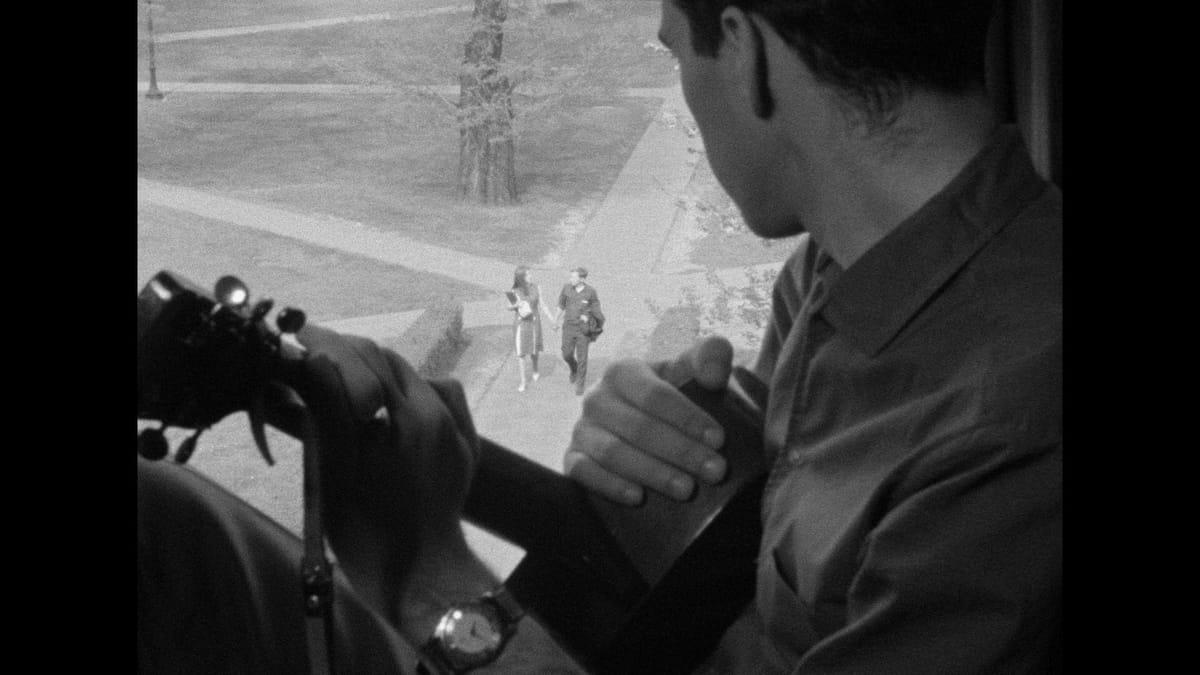
Well, I promised you two movies from the 1960s with very different takes on masculinity, and here we are. Martin Ritt’s Hud and David Secter’s Winter Kept Us Warm arrived two years apart, and other than both being feature length dramas filmed in black-and-white they don’t have a lot of common ground.
Hud is a Paramount prestige affair filled with movie stars, shot on location in Texas, while Winter Kept Us Warm is a tiny little picture shot on 16mm by some Toronto pals for no money. It’s a student film, really. So like I said, not a lot in common … except they both showed up around the same time, and I noticed a point of comparison. So here we are.
Let’s start with the smaller picture, because its return to circulation is nothing short of a miracle: Winter Kept Us Warm has been nearly impossible to see for decades.
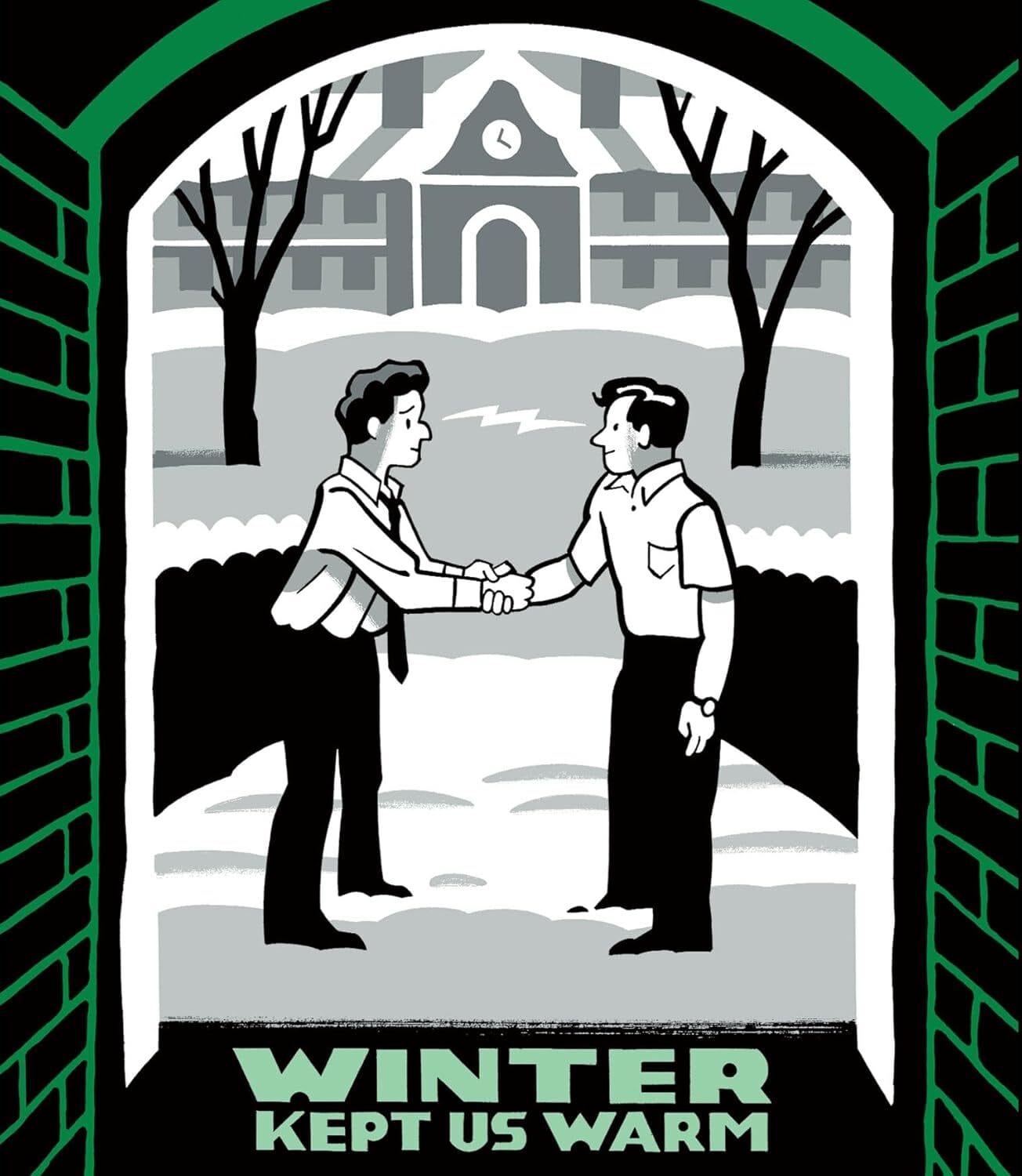
The story of two young men – small-town freshman Peter (Henry Tarveinan) and slightly older, considerably more confident Doug (John Labow) – who become friends, and possibly more, when their paths cross at the University of Toronto, Secter’s first film was the first feature from English Canada to screen at Cannes, and one of the earliest queer movies to be made in this country, full stop.
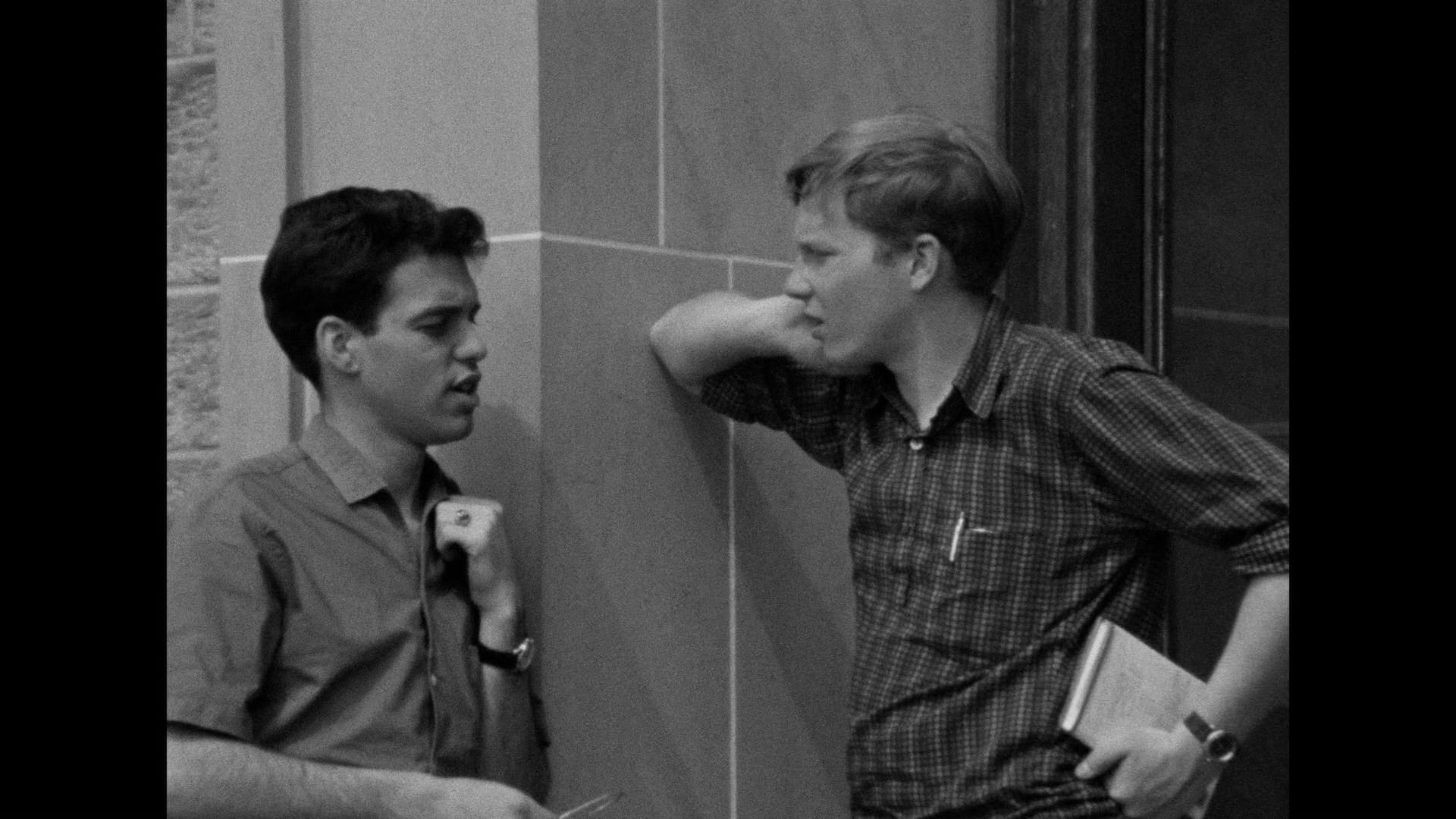
There were rare showings of battered prints here and there, but Secter’s film (which has no explicit content, and keeps the attraction between its characters almost entirely subtextual) was never released on tape or disc, let alone streaming. When we were putting together NOW’s list of the best Toronto movies in 2013, the only way to see the film was on an old VHS tape at the University of Toronto’s Robarts Library; Glenn Sumi and I had to watch it in a tiny little utility room. It wound up placing at #17, and probably should have been a little higher.
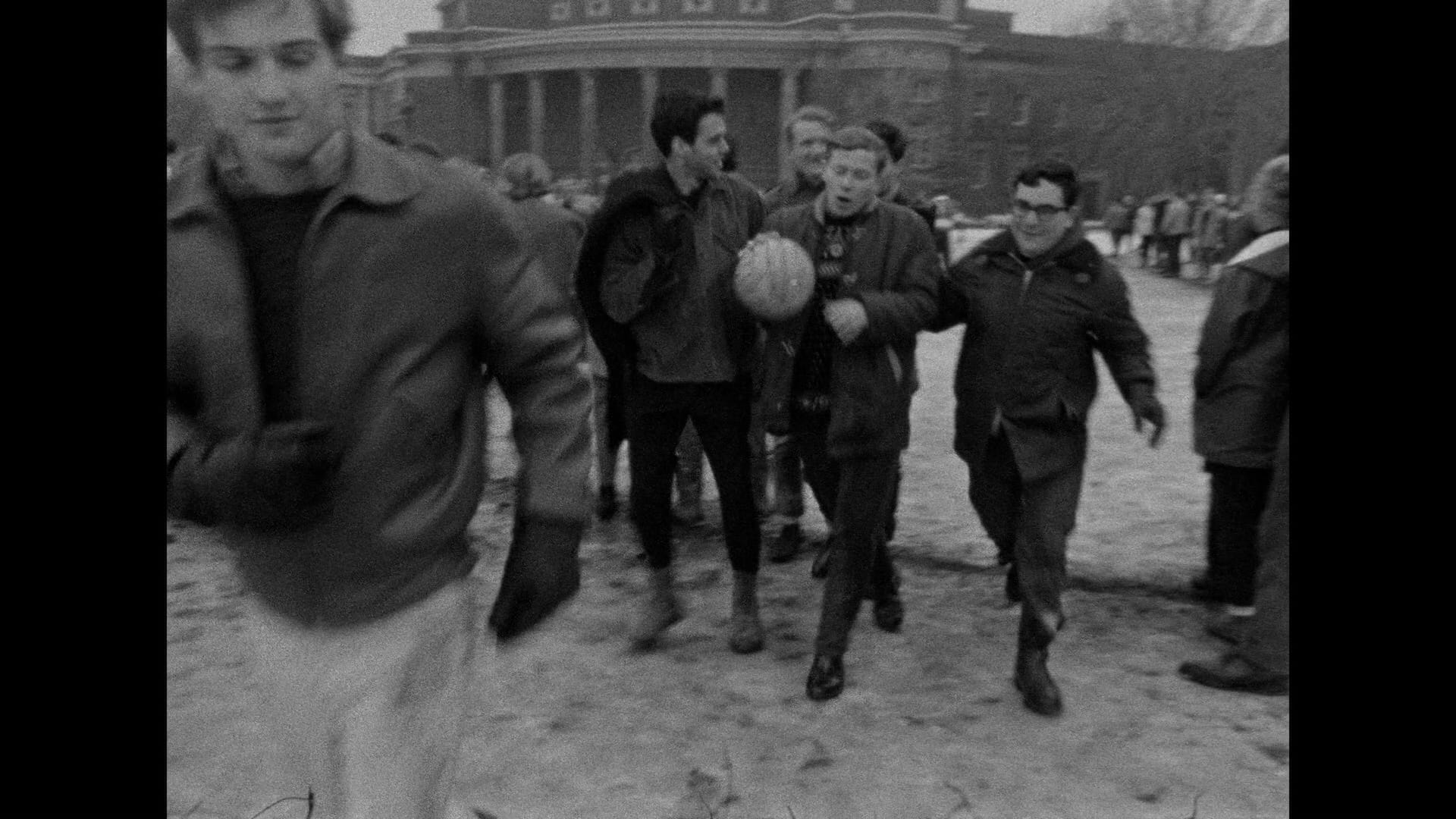
Last year, I got to screen the new restoration – which is the one that appears on Canadian International Pictures new Blu-ray – in TIFF’s See the North series – on a much bigger screen, for a much larger crowd. They were a little restless at first, but eventually they got onto the film’s uncertain, skittish wavelength, which makes us feel the camera itself is afraid to look directly at its story. And maybe it was.
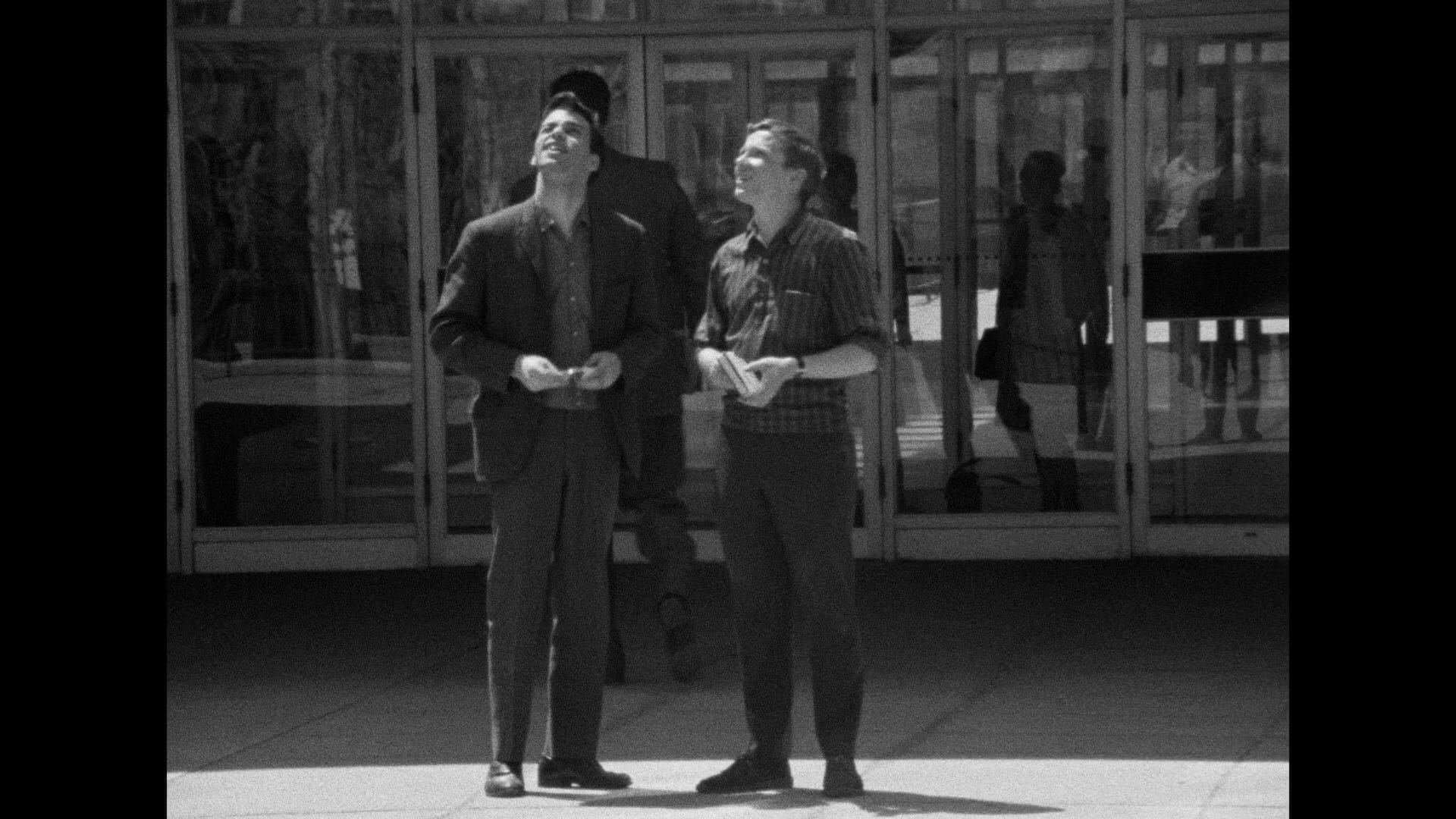
Homosexual activity was literally illegal in Canada when the film was shot, and much of Winter Kept Us Warm finds Secter and his student crew taking pains to encode Doug and Peter’s behavior in a way that could be read as simple friendship. But the connection that forms between the two is undeniable, to the point that even the women they date kind of figure it out. (They’re played by Janet Amos and Joy Tepperman, who would respectively become a stage legend and an author under the name Joy Fielding.)
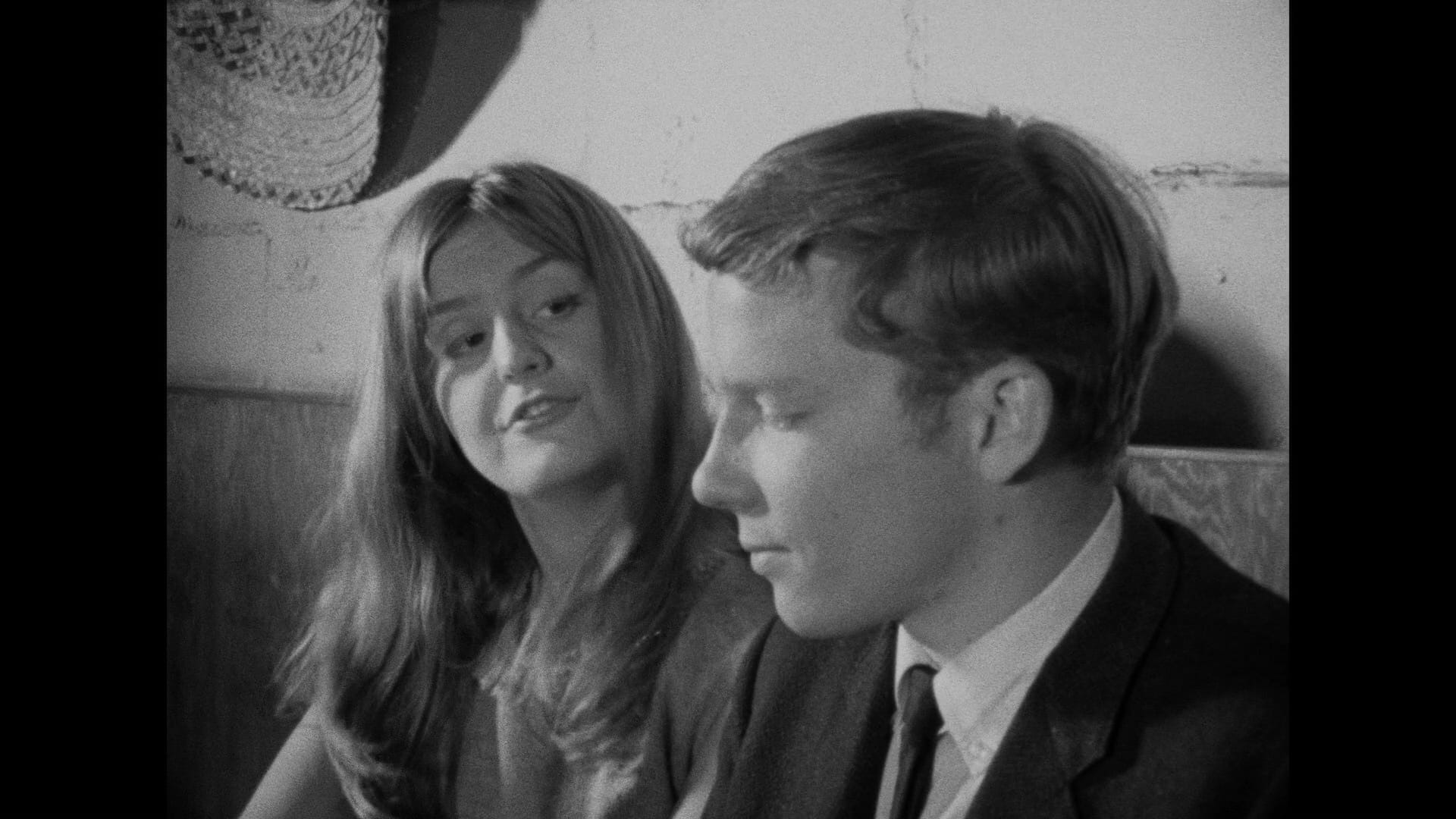
This a character study, not a melodrama. All Secter does is put these characters in front of the camera, and watch them exist. But in 1965 that was a revolutionary act, especially for buttoned-down Canadian cinema; it’s incredible to watch it now and realize that the country’s genre revolution – powered by the likes of Bob Clark and Secter’s U of T classmate David Cronenberg – was less than a decade away. But Winter Kept Us Warm was the first to test the boundaries of Canadian cinema culture, at least outside of Quebec, and the fact that it did it with a whisper is something truly precious.
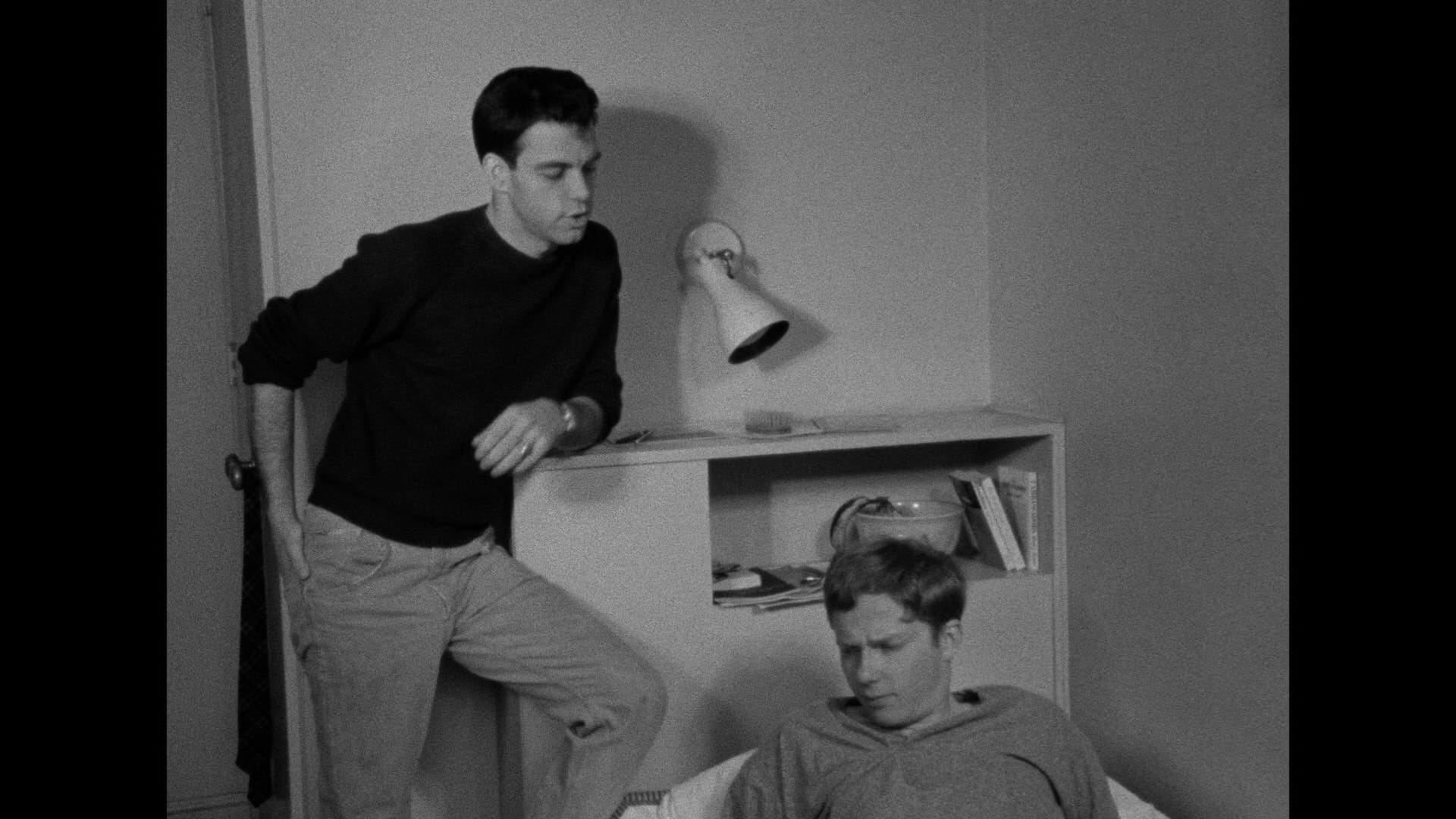
Canadian International Pictures has been producing exceptional special editions over the last few years – and I promise I’m not just saying this because they included an episode of Someone Else’s Movie on their Blu-ray of The Devil At Your Heels earlier this year. But the fact that they asked is indicative of the breadth of their supplemental curation, and I’m tempted to say that the special features on Winter Kept Us Warm are everything one could want for a film of such historic significance.
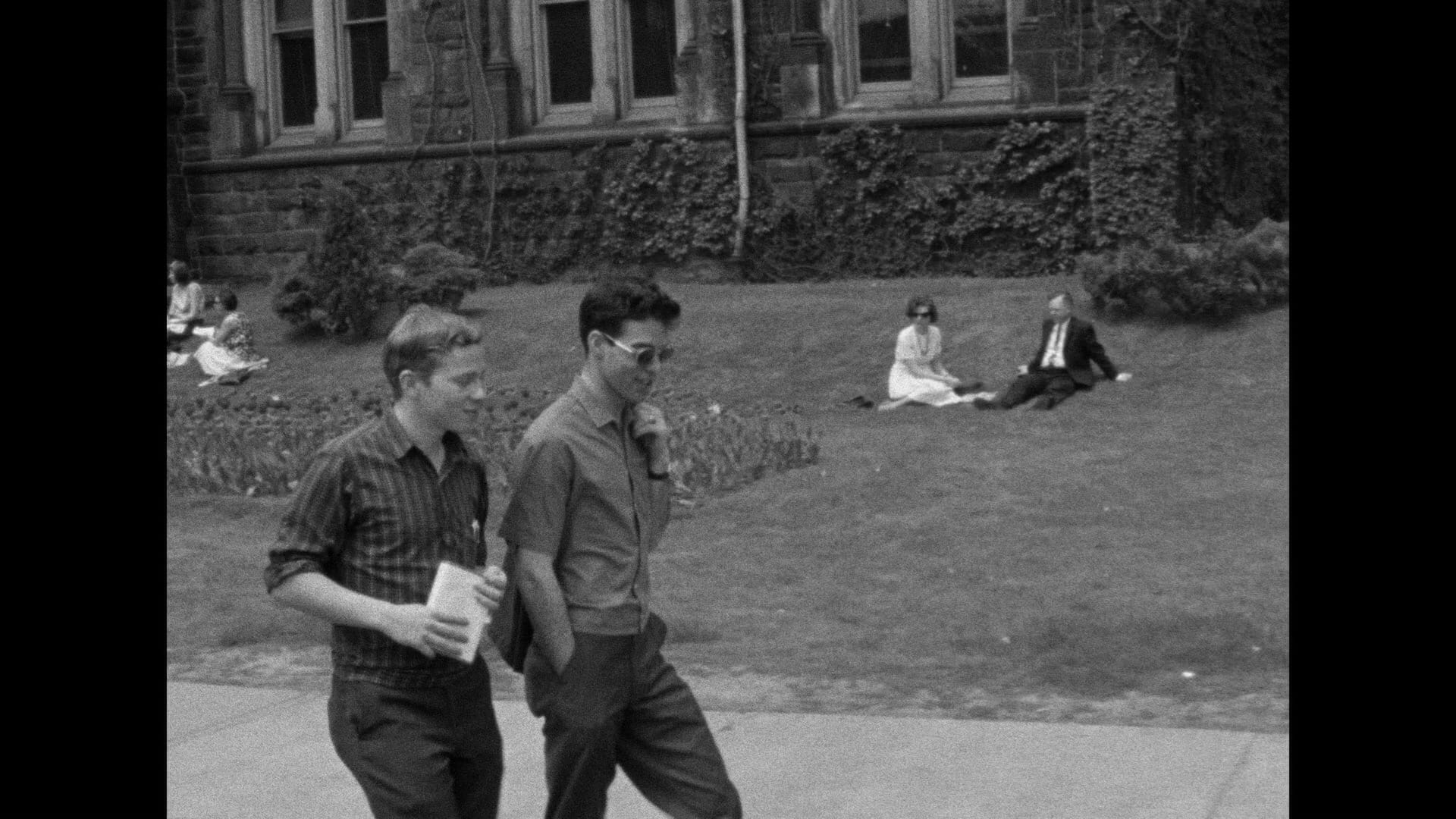
Simply restoring and releasing Secter’s movie would have been enough for some labels, but the mixture of archival and newly produced material on this Blu-ray is almost startlingly comprehensive. Seriously, my only complaint is that the special-features menu is a little hard to navigate because it’s white text against a scene of a snowstorm.
There’s an audio commentary from writer-director Secter, who sixty years later has plenty to say about the film and its legacy. Another track pairs filmmaker John Greyson and critic Thomas Waugh for an appreciation, and you couldn’t ask for better authorities on Canadian queer cinema.
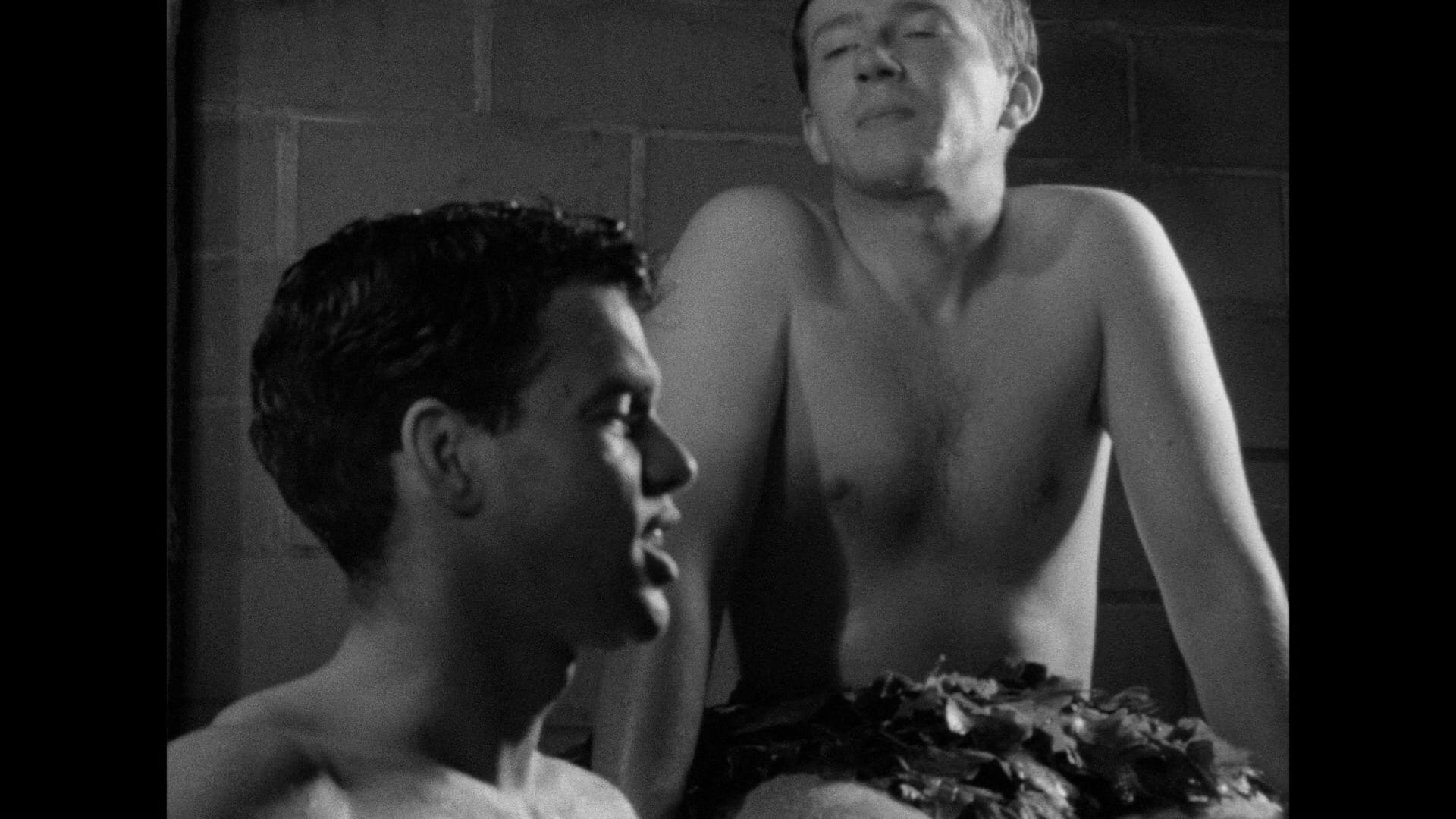
Secter, Fielding, executive producer Ronald B. Thomson and composer Paul Hoffert all sit down for new interviews – Secter and Hoffert’s sessions gave the CIP team enough material for two featurettes apiece – and Secter goes into considerable detail on Memory & Desire, the sequel he wrote but never shot. (The screenplay is included as well.)
Archival extras include production footage, outtakes and deleted scenes, a new 2K scan of Secter’s 1964 short film Love with the Proper Guppy and The Best of Secret & the Rest of Secter, an hour-long documentary made in 2005 by the director’s nephew Joel Secter – and notable for including Cronenberg among its interview subjects. He’s credited Secter as an inspiration, showing him it was possible to make films at home without compromising his vision, and it’s good to have those statements preserved for posterity along with the film that inspired him. We aren’t very good at honoring the full range of our artistic history in Canada, or at least we haven’t been until recently; I’m very happy to see Canadian International Pictures stepping up to tackle the gaps.
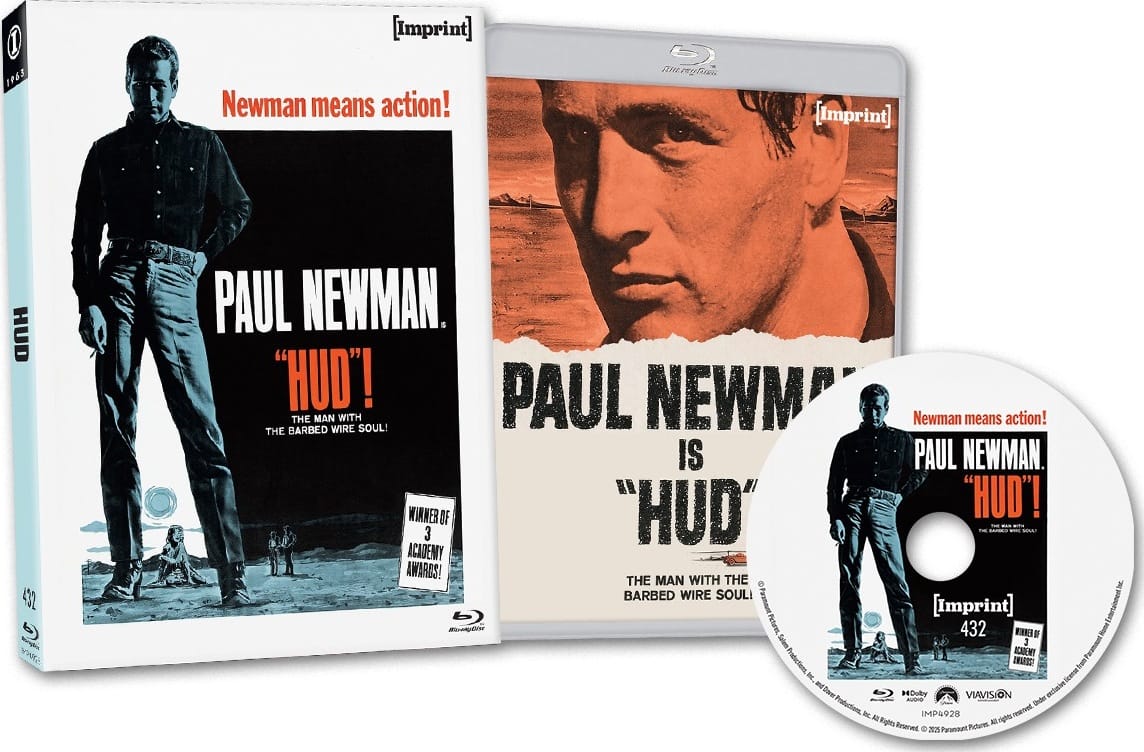
Hollywood doesn’t have that problem, and so you’ve probably heard of Hud – even if you only know it as an adaptation of Larry McMurtry’s first novel Horseman, Pass By, or the movie that won Oscars for Patricia Neal, Melvyn Douglas (his first) and cinematographer James Wong Howe (his second). But it’s also a key film in Newman’s career, part of his shift in the early ’60s from matinee-idol performances to spikier, more complex characters and antiheroes.
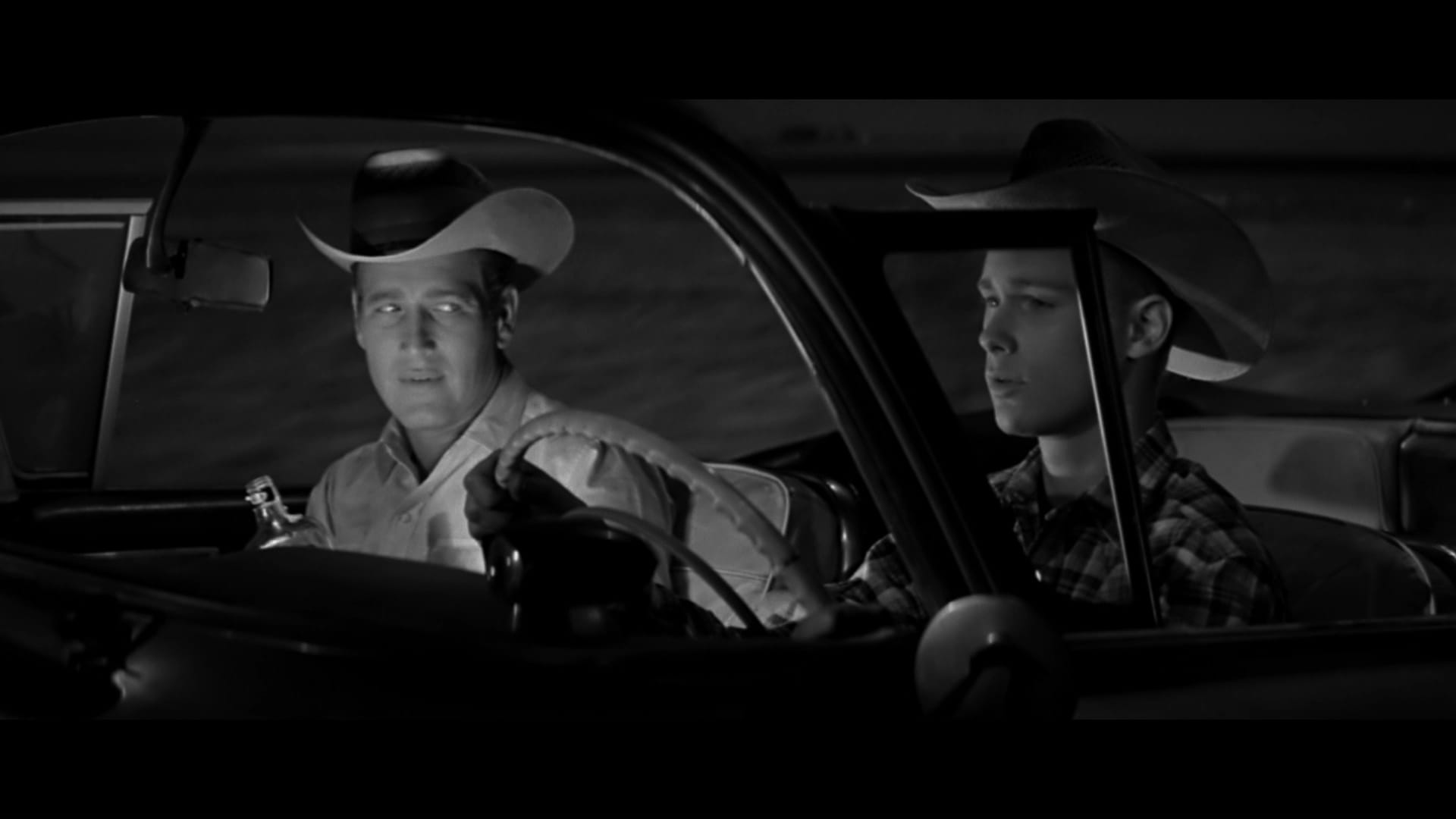
Hud Bannon, the restless son of Douglas’ aging Texas rancher Homer, is no hero; he’s selfish and ill-tempered, and a terrible influence on his nephew Lonnie (Brandon deWilde), whom Homer’s been raising since the loss of Hud’s brother Norman. Homer blames Hud for Norman’s death, and he might be right to, but Hud blames Homer right back. Their battle for Lonnie’s soul becomes the spine of the story, though Ritt is sly enough to keep it buzzing in the background, as all three Bannon men battle a hoof-and-mouth epidemic threatens to destroy Homer’s ranch.
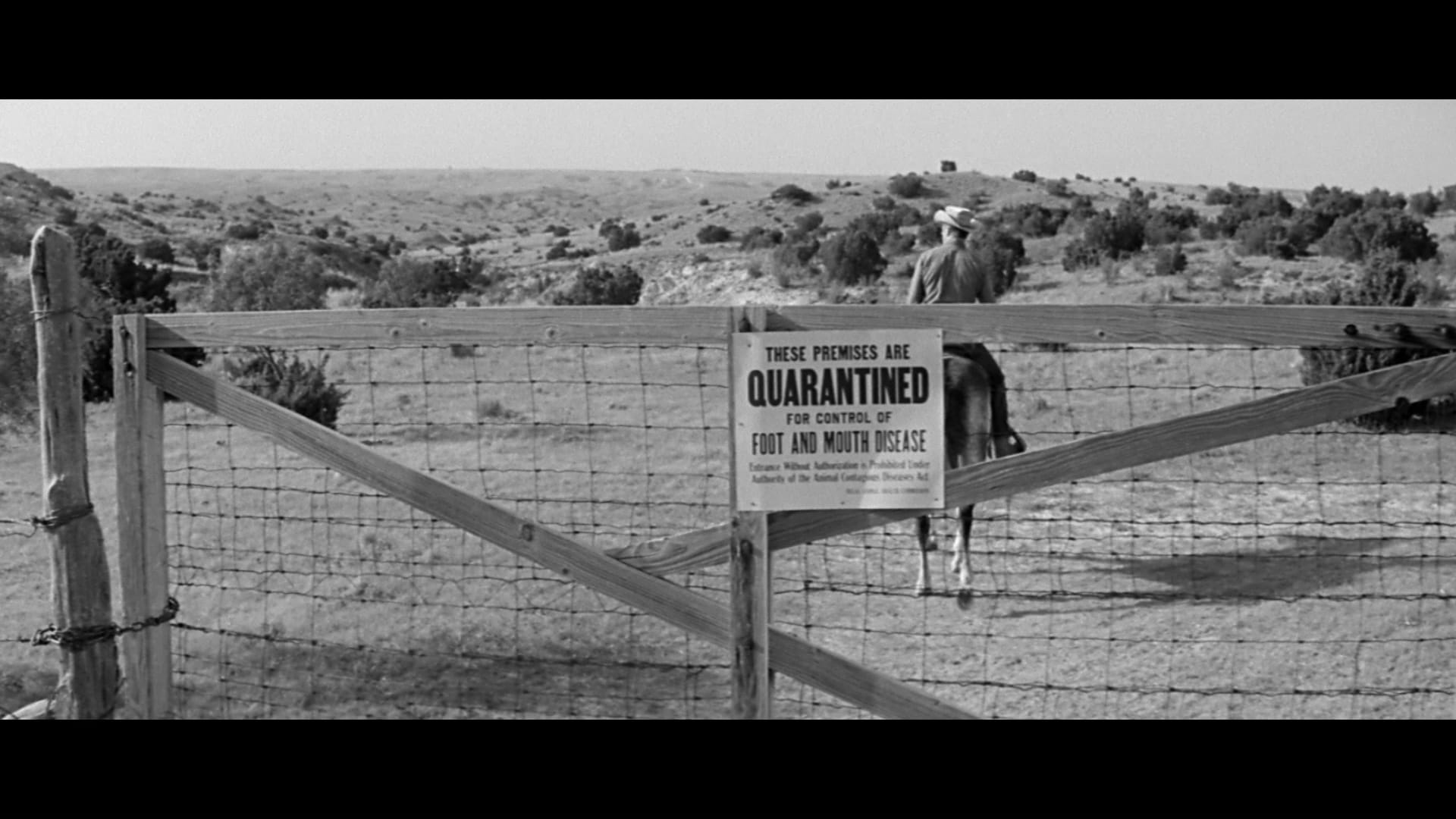
They’re not the only ones whose livelihood is at stake; there’s also Alma (Neal), Homer’s housekeeper, who’s fond of Lonnie but drawn to Hud. The character was a Black woman, Althea in McMurtry’s novel; but Ritt changed her race – and her name – because he didn’t think audiences of the day would accept an interracial relationship. Neal makes the role her own, with a quiet but implacable bearing that tells us Alma’s got a long history of being disappointed by men; she’s not the only one who sees through Hud’s swagger, but she’s the only one who calls him on it.
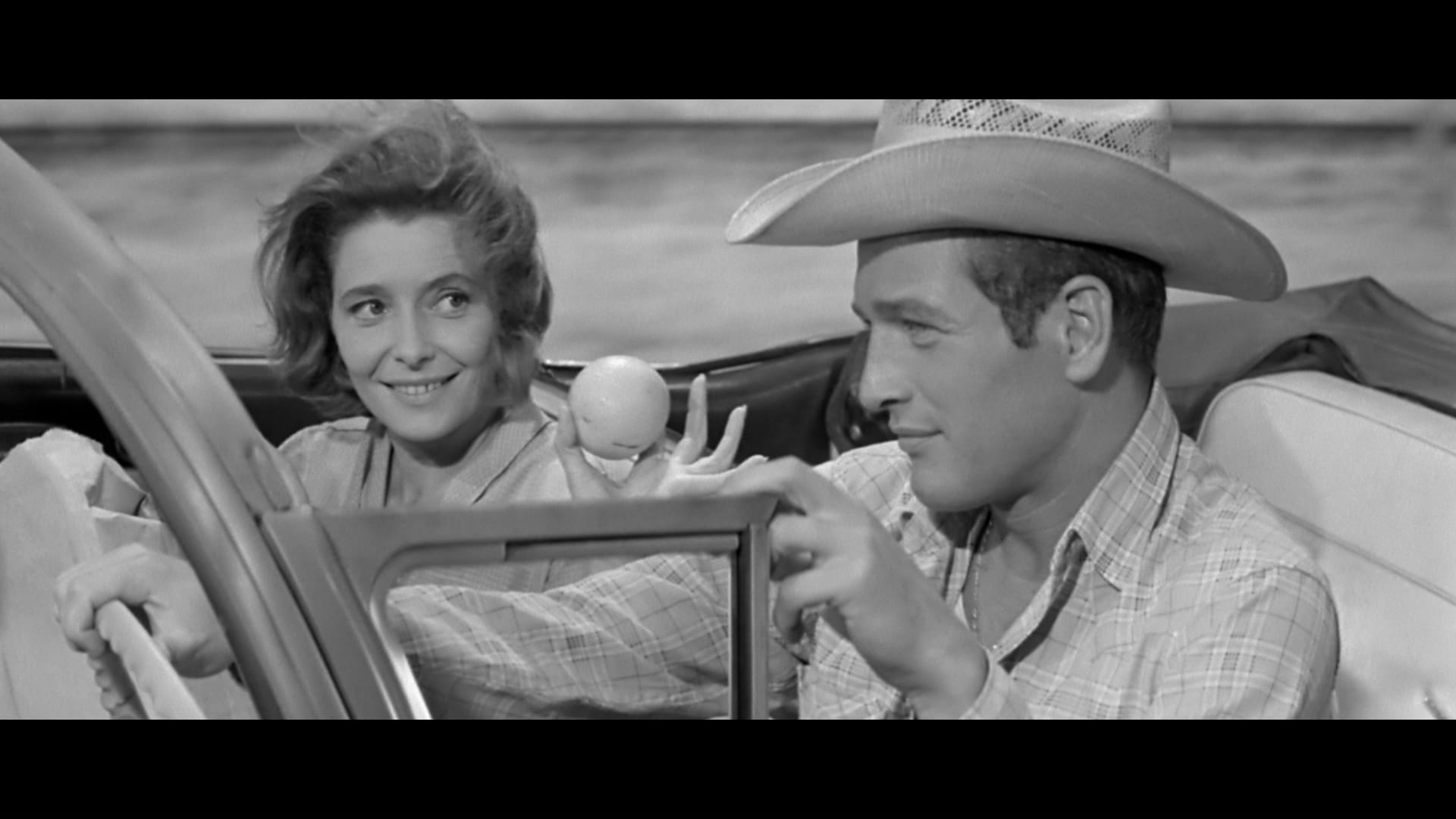
All four actors are doing sterling work, but Hud is Newman’s picture from the start. (The clue is in the title, of course.) wasn’t interested in softening the man in the slightest; he knew that the more he tried to push the audience away, the more intrigued they’d be. And as events become more personal, and Hud runs out of ways to pretend he doesn’t care about the people in his life, Newman – in contrast to Douglas’ faltering dignity as Homer and deWilde’s naïve decency as Lonnie – offers a consideration of toxic masculinity decades before anyone had the language for it. Certainly the Bannons don’t.
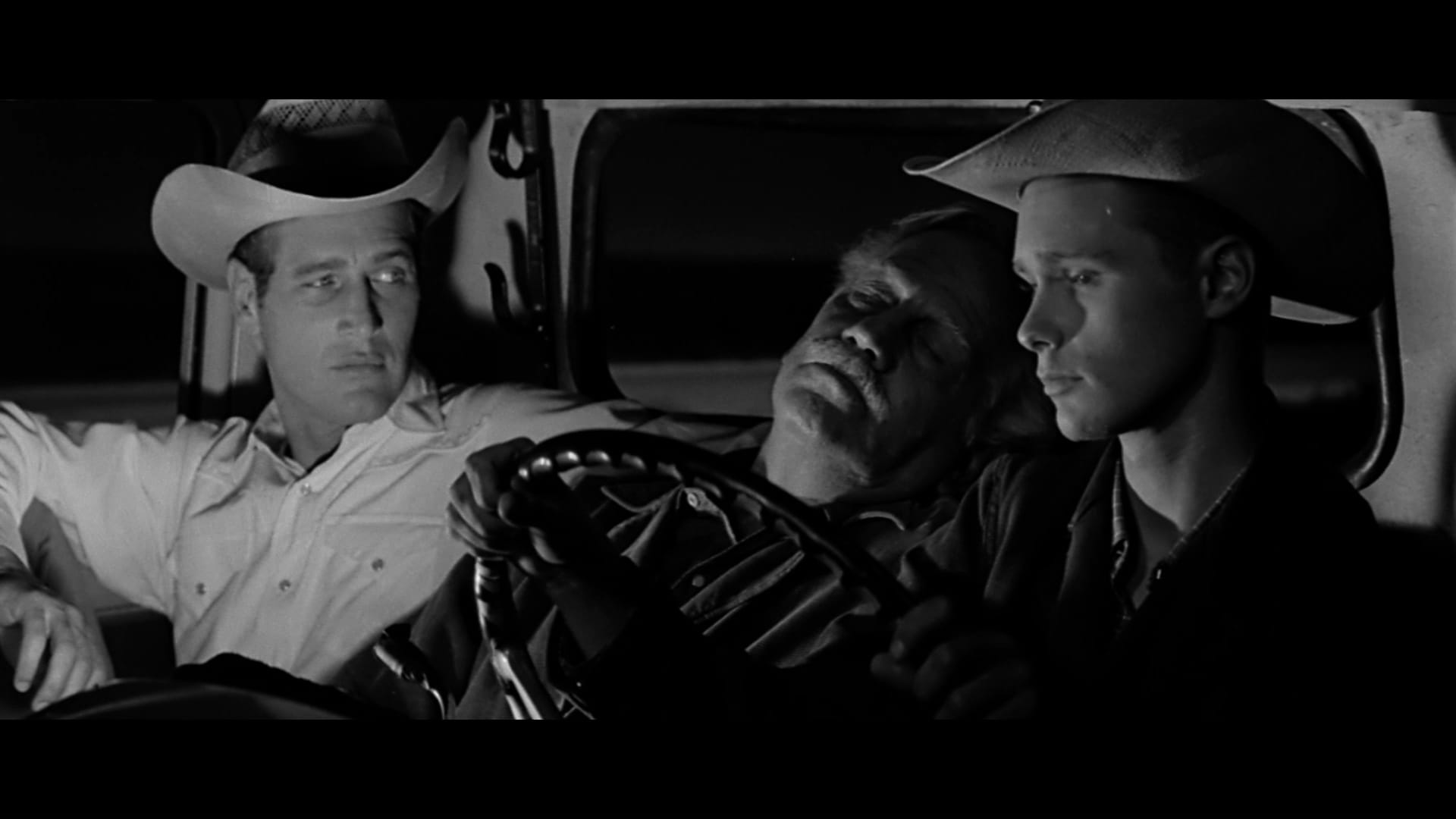
Imprint’s Blu-ray is actually the second Australian release of Hud on the format, since a label called Shock Entertainment put out a featureless version a few years ago. But it’s the only one that’s registered beyond the continent, as far as I can tell.
The feature – presented in a good-enough 1080p/24 transfer that I’d guess was produced for streaming service about a decade ago – is accompanied by a new audio commentary from critics C. Courtney Joyner and Julie Kirgo, and the actor Ileanna Douglas, granddaughter of Melvyn, sits down for a 35-minute interview about her fondness for the movie and the performance she treasures.
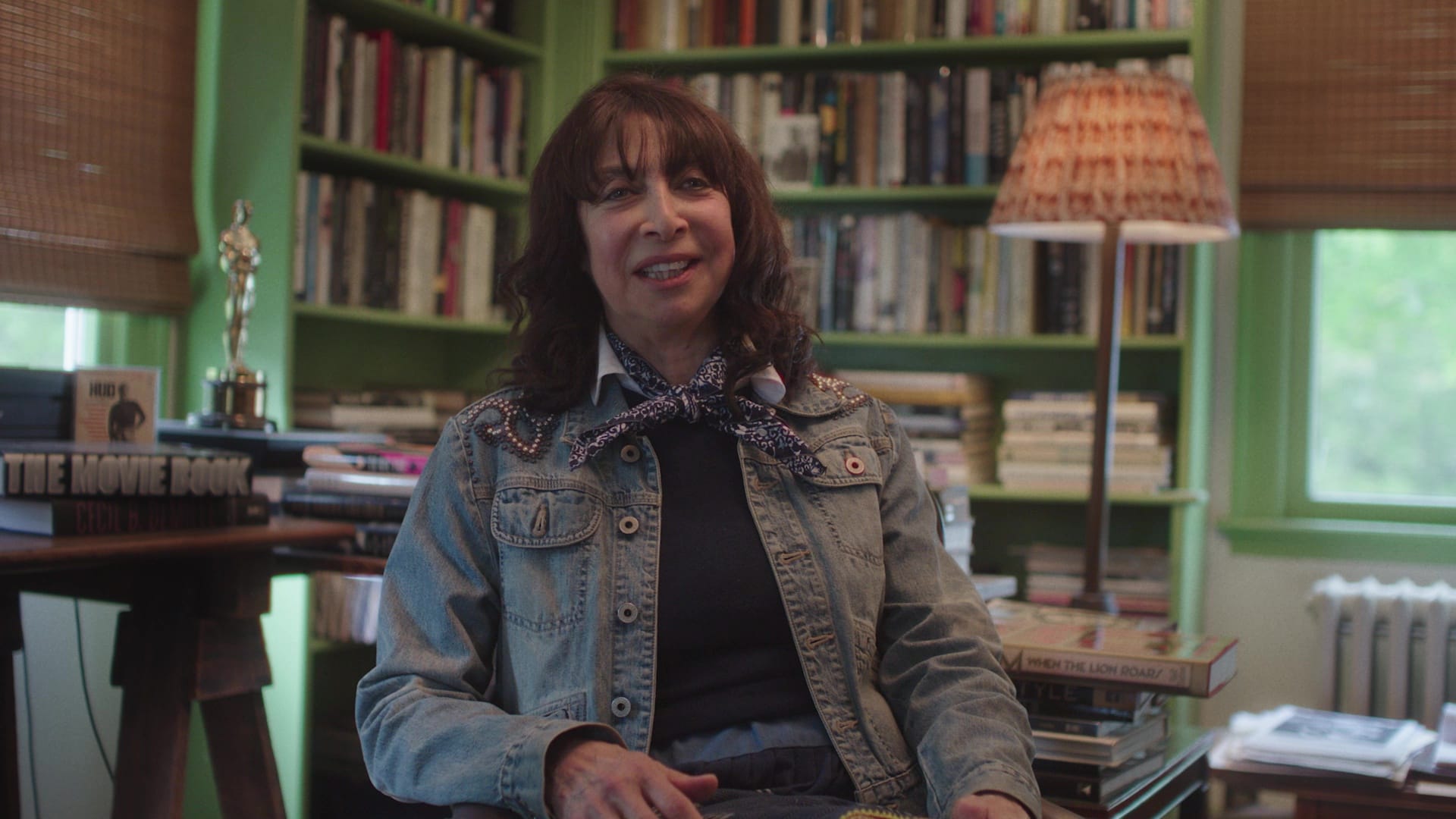
I expect Hud will eventually get the full 4K treatment somewhere down the line – Paul Newman’s legacy sort of makes it inevitable, and Wong Howe’s gorgeous monochrome scope work merits the best possible presentation – but until then, this disc will do just fine.
Winter Kept Us Warm is now available on Blu-ray from Canadian International Pictures, distributed by Vinegar Syndrome; Hud is now available on Blu-ray from Via Vision Entertainment.
Up next: Dinosaurs return in Jurassic World: Rebirth, and Celine Song follows Past Lives with a different sort of romantic triangle in Materialists. But first, subscribers to the paid tier get my weekly recommendations for What’s Worth Watching! Not a paid subscriber? That’s easily fixed.
